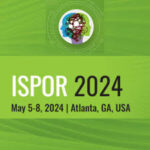
This gallery contains 1 photo.
ToxStrategies and EpidStrategies are pleased to announce the promotion of 12 of our scientists, epidemiologists and engineers. We are proud to have them… read more

Dr. Naomi Sacks, HEORStrategies Vice President, is a co-author on a recently published study, “Impact of Demographics and Insurance Coverage on Schizophrenia Treatment… read more
 Dr. Naomi Sacks, Vice President, HEORStrategies, a Division of ToxStrategies LLC, is at the annual meeting of ISPOR (The Professional Society for Health Economics and Outcomes Research), which is being held in Atlanta May 5–8, 2024. Dr. Sacks is a co-author on the poster presentation, “Treatment History, Healthcare Resource Use, and Costs Among Patients with Pulmonary Arterial Hypertension (PAH) Initiating Treatment with Macitentan: A Retrospective Claims Analysis.” If you are at ISPOR, reach out to Naomi!
Dr. Naomi Sacks, Vice President, HEORStrategies, a Division of ToxStrategies LLC, is at the annual meeting of ISPOR (The Professional Society for Health Economics and Outcomes Research), which is being held in Atlanta May 5–8, 2024. Dr. Sacks is a co-author on the poster presentation, “Treatment History, Healthcare Resource Use, and Costs Among Patients with Pulmonary Arterial Hypertension (PAH) Initiating Treatment with Macitentan: A Retrospective Claims Analysis.” If you are at ISPOR, reach out to Naomi!
https://www.ispor.org/conferences-education/conferences/upcoming-conferences/ispor-2024
A recent report by the International Energy Agency (IEA) took inventory of the electrical grid worldwide and found a large gap between investment in renewable/clean energy and the grid that will be required deliver this energy. Renewable energy projects, such as solar and wind, are being developed at a rapid rate worldwide, and these energy sources require additional transmission lines to connect them to the existing grid, as well as reliable distribution grids to ensure consistent supplies for customers. The gap between the energy flowing in and the capability to distribute it is widened further by the fact that traditional fossil fuels are being replaced by new technologies (e.g., electric cars and heat pumps). The IEA report concluded that underdeveloped grids are a substantial hurdle to planned transitions to green energy.
This mismatch in investments could result in a slowed transition to renewable energy and a missed opportunity to meet CO2 emission reduction targets. The report concluded that 2.8 million miles of power line need to be constructed in the US by 2050 to meet the goals set forth in the Announced Pledges Scenario.
Given the length of time it takes to plan, permit, and complete the construction of power lines, the need for this investment is time sensitive. Opposition from the public often increases lead times on projects, and health concerns are commonly raised during permitting due to concerns about electric and magnetic fields (EMF), which are associated with all things that generate, use, and transmit electricity. The potential influence of EMF on health has drawn considerable interest in the scientific community, resulting in a large body of research.
The IEA report noted that establishing effective communication channels with stakeholders early in project planning to address concerns about issues such as EMF is key. Our team of epidemiologists at ToxStrategies is well suited to assist with questions about EMF that arise during the planning and permitting of new power lines. For more information on our experience and qualifications, please contact Meghan Mitchell or Michael Kelsh.
HEORStrategies’ Dr. Naomi Sacks is a co-author on a study of healthcare resource use and costs in cardiac arrhythmia patients with paroxysmal supraventricular… read more